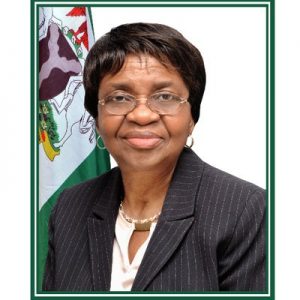
Citing the current outbreak of Covid-19 (coronavirus) in China, the National Agency for Food and Drug Administration and Control (NAFDAC) has declared that Nigeria is in grave danger of drug insecurity because most of the medicines consumed in the country are imported from the Asian nation.

NAFDAC director-general, Prof. Mojisola Adeyeye, raised the alarm yesterday in Abuja during an interaction with journalists on the upcoming African Medicine Quality Forum (AMQF) meeting slated for 24th-28th February in the nation’s capital.
AMQF is a Technical Working Group of African Medicines Regulatory Harmonisation (AMRH), with the goal to build and strengthen the capacity of African countries in medicines quality control and regional post-marketing surveillance which in turn, will contribute significantly to reducing substandard and falsified medical products in circulation in the continent.
The meeting will convene all members of the AMQF including its Technical Committee (TC), leadership from the United States Pharmacopeia (USP), African Union Development Agency/New Partnership for Africa‘s Development (AUDA-NEPAD), World Health Organisation (WHO), regional economic communities (RECs), regional health organisations (RHOs) as well as other partners and key stakeholders.
Adeyeye said that Nigeria imports 70 per cent of its medicines and other active and non-active ingredients from countries such as China, India and others, and called for immediate steps to address the looming drug insecurity problem in the country.
She said: “70 per cent of our drugs are imported and the alarm I am sounding now is one everybody should take seriously. We have drug insecurity because of the coronavirus.
“India is already feeling it because they buy most of their materials and active ingredients from China. If India is feeling it, we should start praying because we don’t manufacture anything here except water; we import almost everything – active and non-active ingredients, equipment etc.
“So, it is a scary thing, and I have been emphasising this from day one. We need drug security. Since we import 70 per cent of our drugs, then, we are in trouble if such things happen,” Adeyeye stated.
On falsified and substandard medicines, Adeyeye said that NAFDAC was collaborating with the Pharmacists Council of Nigeria (PCN), especially in markets that are not approved or those known for substandard medicines.
She added that NAFDAC was also in talks with online stores like Jumia, and would continue to mount pressure on them to ensure that any advertiser that want to sell drugs on their platforms, must have been registered with PCN.
Adeyeye explained that “part of our global benchmarking is to have qualitative laboratories with well trained staff. We have been equipping our laboratories on a daily basis in terms of making sure that whatever we test or we want to test, we have equipment for them, and that our tests are reliable. We have five ISO accredited laboratories; however, we want the Central Drug Laboratory to be World Health Organisation (WHO) pre-qualified.”
Covid-19: ECOWAS Strategises For Enhanced Surveillance
As part of measures by the Economic Community of West African States (ECOWAS) towards enhanced surveillance, health ministers in the region have resolved to strengthen coordination, communication, and collaboration amongst member states.
At a press briefing yesterday in Abuja on the emergency meeting of the ECOWAS Ministers of Health held last weekend in Bako, Mali, the minister of state for health, Dr. Olorunnibe Mamora, said that the forum emphasised the urgency of the current situation regarding Covid-19.
He said that the meeting was aimed at strategising for the protection of the population of the EWCOWAS region.
According to him, following expert presentations on the global situation, the processes currently in place in the region and laboratory preparedness, the ministers resolved to strengthen coordination, communication, and collaboration amongst member states in preparedness for the epidemic.
He also said that the ministers resolved to develop a strategic regional preparedness plan based on member states’ priorities for governments, partners, and the private sector to support.
This, Mamora said included cross-border collaboration, enhanced surveillance and management measures for Covid-19, particularly at entry points – air, land and sea, as well as step up communication to ensure that the public receives accurate, appropriate and timely information regarding the epidemic and urgently strengthen critical national capacities for diagnosing and managing cases.
Other strategies are to develop a strategic costed regional preparedness plan based on member states’ priorities for governments, partners, and the private sector to support, promote multi-sectoral national efforts using one-health approach to maximise impact.
The minister said that they also planned to Implement robust measures to assure the availability of critical medical supplies, including laboratory materials, personal protective equipment in the region and also work closely with the relevant authorities of national governments and the Chinese government to monitor and assure the health situation of Africans residing in China.
The director-general, West African Health Organisation (WAHO), Prof. Stanley Okolo, said that Covid-19 is a new virus which requires high level of preparation.
He said that as at last Friday, a total of 69,267 cases had been recorded with 767 deaths, representing 99 per cent in China, adding that it had spread across 25 countries with one recorded in Africa (Egypt).
Okolo also revealed that there were about 15 countries in Africa where testing for the virus can be carried out, adding that Nigeria has a costed plan on the preparedness to tackle the virus.
According to him, „the devastation of the epidemic affects everyone and that is why we cannot relent on our effort. In our estimate, the cost should be in the tune of $30 million for Nigeria so as to help the financially weak countries especially the neighbouring countries.”






Be the first to comment